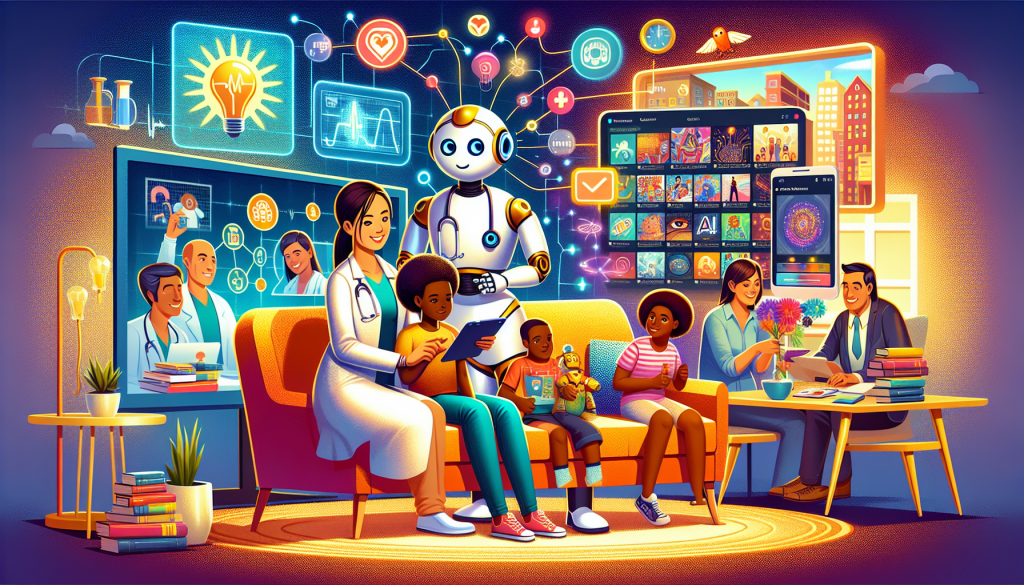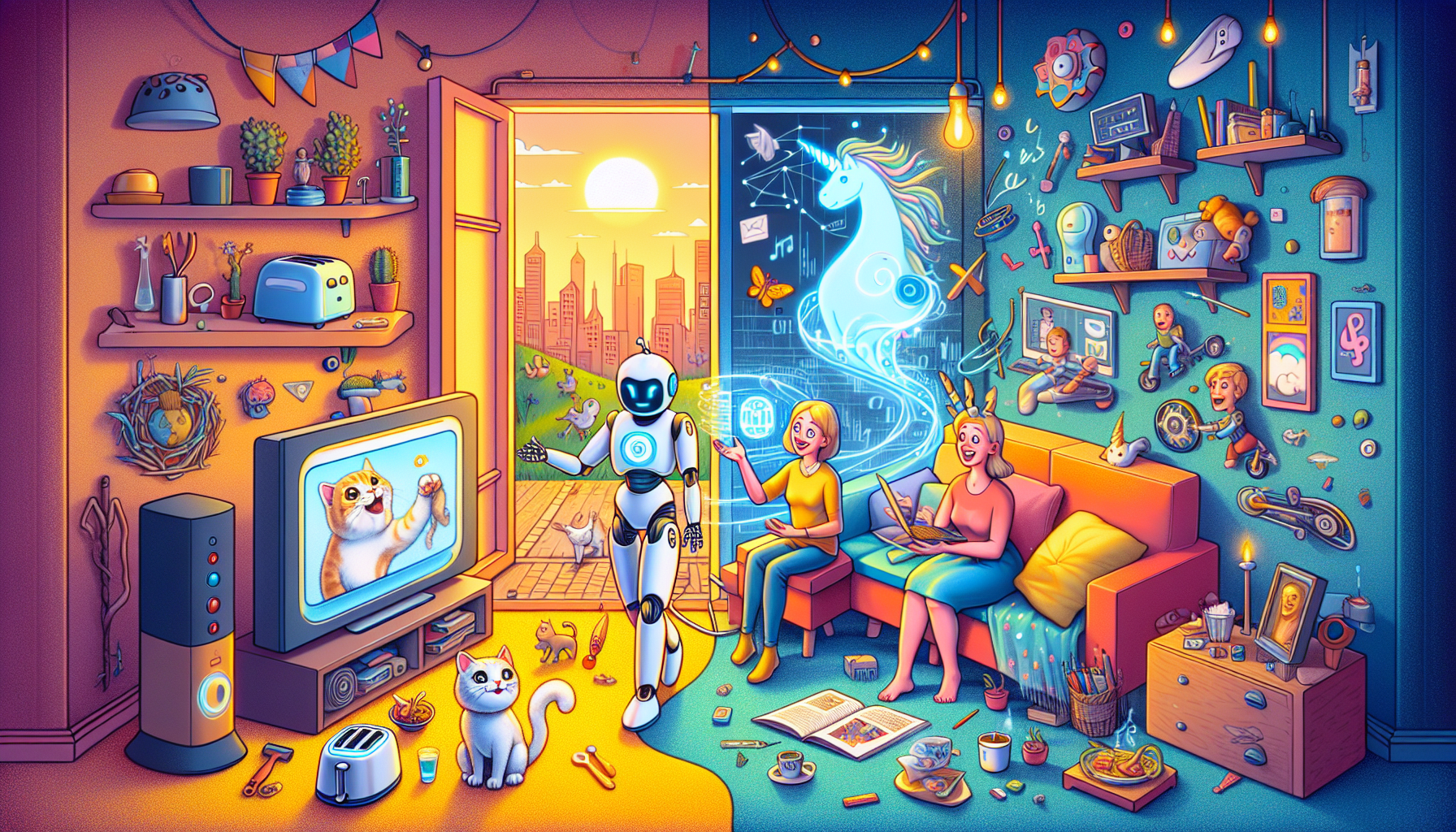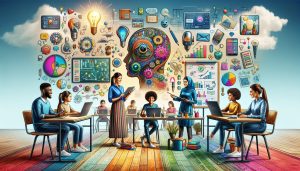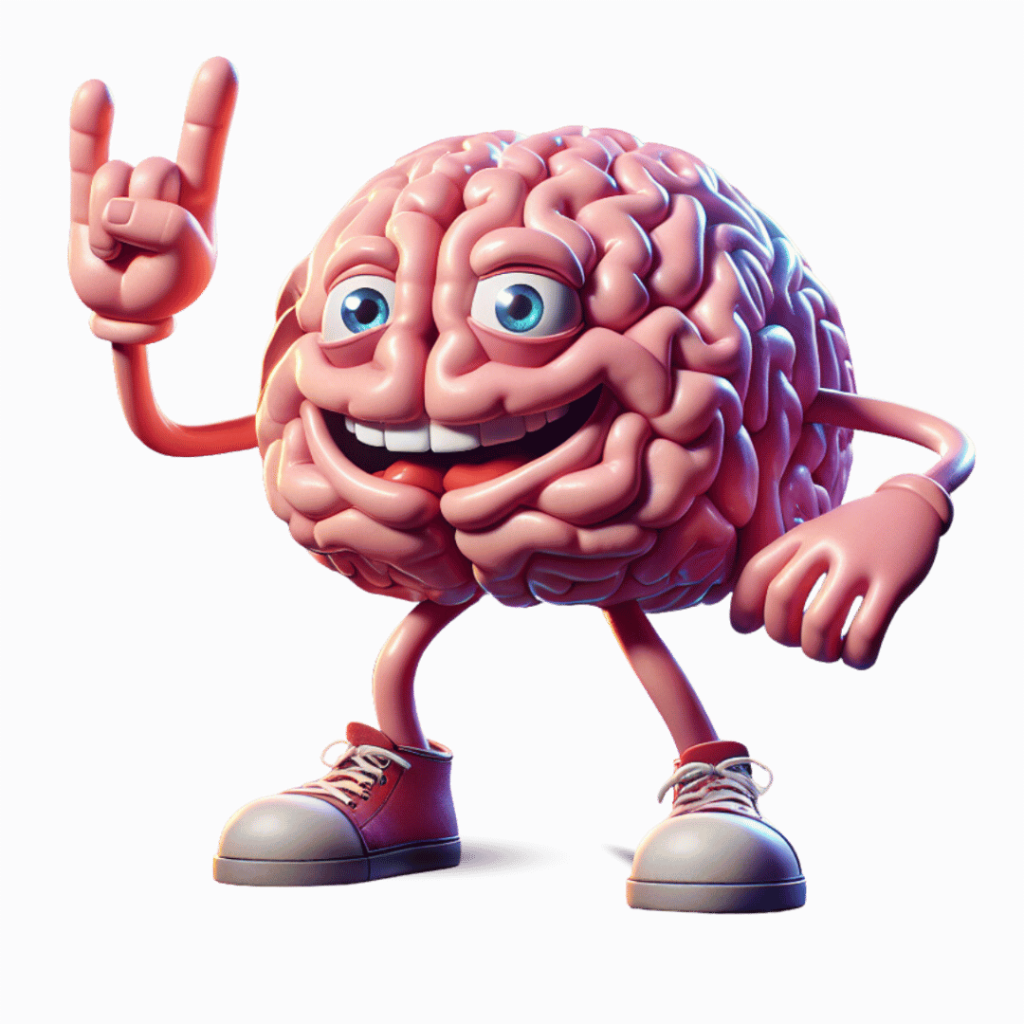Welcome to the AI Playground
So, does my toaster now have feelings? You might think twice the next time your smart home device starts suggesting romantic dinners—but let’s not panic just yet! Artificial Intelligence (AI) is all around us, and it’s not here to take over your life. Instead, AI is like that helpful friend who knows just a bit too much about your preferences, offering recommendations based on how well they know you.
In this blog post, we’ll break down the basics of AI—making it simple, fun, and engaging. Buckle up for a ride through the fascinating world of AI, where we’ll uncover how it works and why it matters in our daily lives.
What Exactly is AI?
So, what is AI? In simple terms, Artificial Intelligence refers to the simulation of human intelligence in machines programmed to think like humans and mimic their actions. Picture it as a virtual brain without the questionable fashion choices!
Now, let’s not get too tangled in jargon. Here’s the scoop:
- AI: General term for machines simulating human intelligence.
- Machine Learning (ML): A subset of AI that allows systems to learn and improve from experience without being explicitly programmed. Think of it as the learning curve we all go through—but much faster!
- Deep Learning: A deeper layer of ML that processes data in a way that mimics how humans learn. It’s like giving your computer a PhD so it can process a ton of information all at once.
Brief History of AI
Let’s take a whimsical stroll down memory lane. The term “Artificial Intelligence” was first coined in the 1950s. Back then, people were a bit skeptical, probably thinking, “Will this lead to a robot uprising?”. Fast forward several decades, and here we are—AI is now a part of our everyday life, evolving faster than a cat video going viral on the internet!
Fun fact: HAL 9000 from 2001: A Space Odyssey was one of the first AI pop culture icons. Talk about making a statement!

Categories of AI
Narrow AI vs. General AI
Most of the AI we interact with today is “Narrow AI.” This means it’s designed to perform specific tasks. Examples include:
- Your smartphone assistant answering your queries (let’s hope it delivers better than a certain someone at a trivia night).
- Netflix suggesting the perfect sci-fi thriller based on binge-watching behavior (thanks for knowing my guilty pleasures, Netflix!).
Now, General AI is like the mythical unicorn of the AI world. It’s an intelligent agent that can perform any intellectual task that a human can. Spoiler alert: We’re still waiting for that unicorn to appear!
Different Types of AI Technologies
Get ready for the AI buffet! Here’s a quick look at some technologies operating under the AI umbrella:
- Natural Language Processing (NLP): Helps machines understand and respond to human language (like when your assistant can finally grasp that “Play my party playlist” doesn’t mean “Play a sad violin piece”).
- Computer Vision: Enables machines to interpret and process visual information from the world (imagine your cat-snapping device recognizing only the furry friends).
- Robotics: Helps create robots that can interact with the physical world (we’re one step closer to robot baristas).
Common Misconceptions About AI
AI vs. Human Intelligence
Time to debunk the myth: people often think AI is close to human intelligence. But comparing them is like contrasting apples and oranges—both fruity but vastly different!
Sure, AI can process large amounts of data, but can it tell a joke without sounding robotic? Probably not. Many people equate AI with human intelligence, but it’s like having a super-smart dog who can do tricks; they won’t quite understand the complexities of human feelings.
The Bias in AI
Let’s address the elephant in the room: AI can be biased. How, you ask? Imagine an AI recommending products based on flawed data—it’s like that one friend who insists on recommending a horror movie when you requested a rom-com. Not quite helpful!
Bias in AI can often stem from the dataset it learns from, so understanding this helps ensure we build systems that work for everyone, not just for one demographic that loves pineapple on pizza (just why?).
Real-World Applications of AI
Healthcare
AI is revolutionizing healthcare! While it won’t be making house calls, AI does assist in diagnostics and suggesting treatments. Picture an AI-powered device spotting potential health issues quicker than a doctor can say, “Let’s run some tests.” This can lead to better patient outcomes and faster diagnoses!
Entertainment
Ever wonder how Netflix knows you’re craving that sci-fi thriller? That’s AI at work, analyzing your viewing habits and curating your experience based on your tastes. And let’s not forget about AI’s role in music and art, where it has created songs and paintings you probably didn’t know you needed in your life.
Other Industries
AI isn’t just for geeks with pocket protectors; it’s making waves in finance, marketing, and education, too. For instance:
- Finance: AI algorithms can analyze stock trends and provide recommendations, without needing a fancy suit.
- Marketing: AI helps businesses target their audience effectively with customized campaigns aimed at different demographics.
- Education: Imagine an AI helping teachers craft personalized learning experiences—like having a teaching assistant that never corrects your grammar.
Getting Started with AI
Beginner Tools and Resources
Want to dip your toes into the AI pool? We’ve got you covered! Here are some user-friendly online courses and tools to get started:
- Coursera: Offers tons of beginner-friendly AI courses.
- Kaggle: A platform for data science and machine learning projects where you can practice your skills.
- Google AI: Great resources and tutorials for newbies, plus they don’t charge extra for using “AI” in their name.
No need to be a coding wizard—think of it as learning how to ride a bike before you attempt the Tour de France!
Simple Projects for Beginners
Here’s your chance to get hands-on! We’ll suggest mini-projects, like building a basic chatbot that can answer questions. This can be your first step towards creating interactive AI experiences! Trust me, the joy of creating your digital sidekick will feel like achieving the ultimate level in a video game.
Welcoming the AI Revolution
As we wrap up this journey through the universe of AI, let’s remember that it’s a powerful tool designed to enhance our lives, not replace them. You now have the tools to explore this fascinating field. Whether it’s making our lives easier in healthcare, entertainment, or education, embracing AI can inspire creativity and innovation in unexpected ways.
So, what do you think? Are you ready to dive deeper into the world of AI? Have an interesting AI experience? Or perhaps you think it should just stick to managing your playlists? Let us know in the comments!












